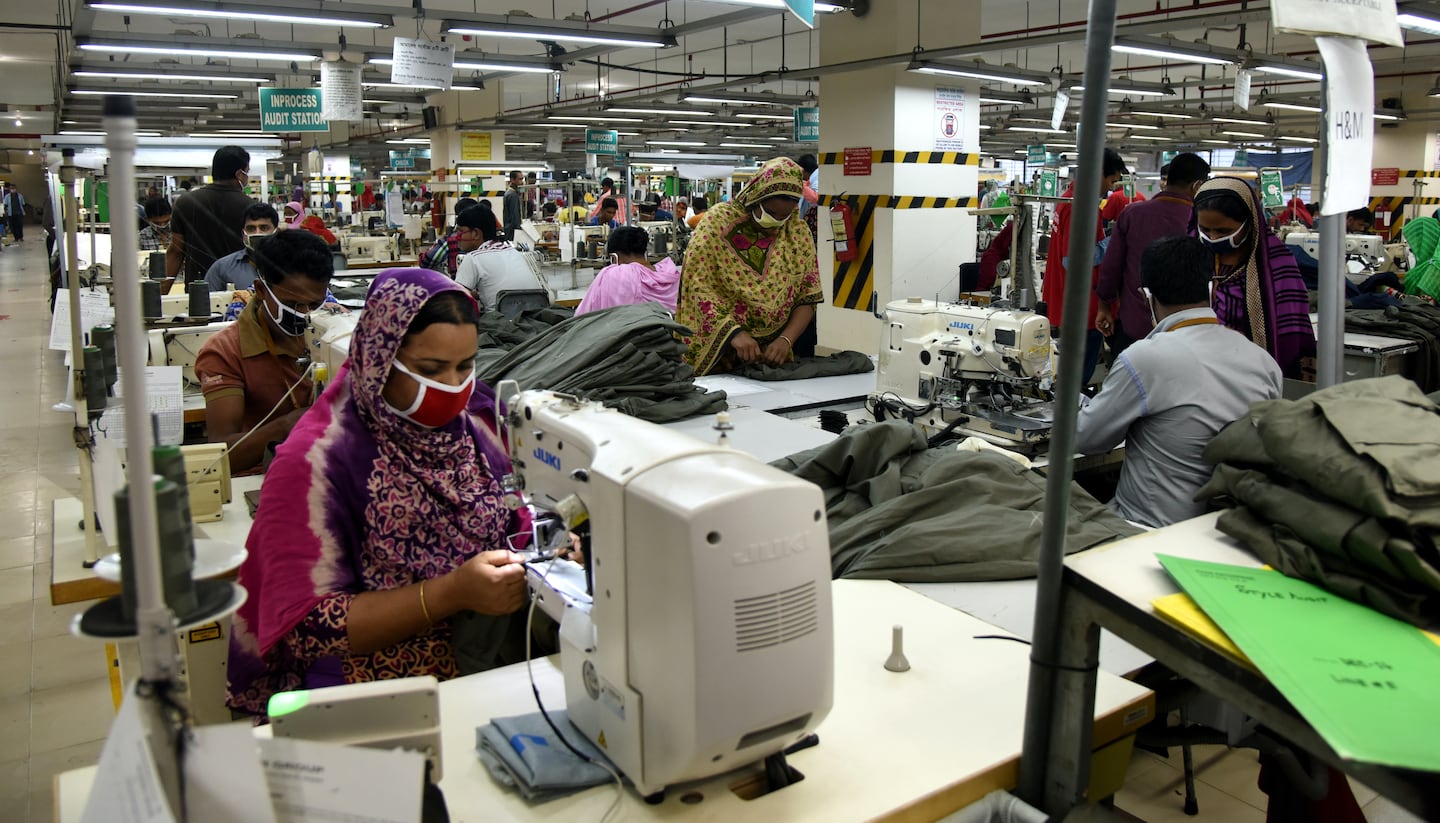
Agenda-setting intelligence, analysis and advice for the global fashion community.

Agenda-setting intelligence, analysis and advice for the global fashion community.

Brands and unions reached a last-minute agreement Wednesday to extend a flagship safety initiative in Bangladesh and expand its scope to other garment- and textile-producing countries.
The new legally binding pact ends months of wrangling that put the legacy of the Bangladesh Accord, one of fashion’s most successful efforts to protect garment workers, at risk. Without a deal, the agreement between brands and labour unions would have expired next week with no similar mechanism to replace it.
Labour groups hailed the deal as a victory that paves the way for more robust worker protections globally, an issue that has gained added urgency through the pandemic.
“This, I think, is truly a model of building back better,” said Ayesha Barenblat, chief executive of ethical fashion advocacy group Remake, which campaigned in support of a new deal. Better conditions in fashion’s supply chain will rest on such initiatives, which “centre the voices of garment makers, keep workers safe and assure that there is proper accountability for brands,” Barenblat said.
ADVERTISEMENT
The Bangladesh Accord was established in the wake of the collapse of the Rana Plaza factory complex in 2013. The disaster killed more than 1,000 people and remains one of the deadliest garment industry disasters to date. Amid widespread public outrage, more than 200 brands signed onto the initiative, which made them subject to legal action if their supplier factories in Bangladesh did not meet health-and-safety standards or failed to fix issues within an agreed-upon time frame. It was an unprecedented level of accountability and remains an unusually robust framework in an industry that is still largely governed by voluntary codes of conduct.
The new agreement, titled the “International Accord for Health And Safety in the Textile and Garment Industry,” extends out to October 2023. It remains a legally binding commitment to ensure worker safety in Bangladesh and brand signatories have agreed to work on expanding the mechanism to other countries. Companies including H&M Group and Zara-owner Inditex said Wednesday they had signed the new agreement. A full list of signatory brands will be announced September 1, when the new Accord comes into effect.
The agreement marks the end of a long and tense series of negotiations. The Bangladesh Accord was always meant to be temporary, and came under criticism from manufacturers, who were not party to the agreement but largely had to shoulder the costs of remediation.
A drawn out legal battle over the Accord’s right to operate in Bangladesh resulted in a deal to transition its on-the-ground responsibilities, like inspections, to a new body chaired jointly by brands, unions and manufacturers in 2020.
Labour groups said the transition should be accompanied by a renewed legally binding commitment from brands, arguing that it was what made the Accord so effective. But securing an agreement proved challenging, with no deal emerging ahead of an initial deadline for the Accord to expire in May. A three-month extension was set to end next week.
“Today is a win for the workers in Bangladesh because the Accord saves lives,” said Nazma Akter, executive director of Bangladesh-based labour rights NGO Awaj Foundation, in a statement shared by Remake. “I hope all major brands sourcing from Bangladesh sign on to the new agreement.”
Related Articles:
Why a Landmark Agreement to Protect Garment Workers Risks Falling Apart
ADVERTISEMENT
6 Years After Rana Plaza, Worker Safety Is Under Threat in Bangladesh Again
Brands Say They Want to Keep Workers Safe. Not All Are Willing to Pay for It.
As the EU seeks to crack down on a growing glut of clothing waste, the rise of low-value ultra-fast-fashion, along with increased competition and geopolitical disruption, are putting pressure on the economics of collecting, sorting and recycling used textiles.
After a pandemic contraction — and with a new CEO on board — the godmother of mindful consumption is gearing up to grow (mindfully).
Cheap and versatile polyester has underpinned both the fashion industry’s growth and its worsening environmental footprint. Efforts to switch to recycled fibre are stalled, new data show.
This week, New York hosted the “unofficial climate summit of the year.” But the effort to move the needle on climate action feels as gridlocked as the traffic in midtown Manhattan.